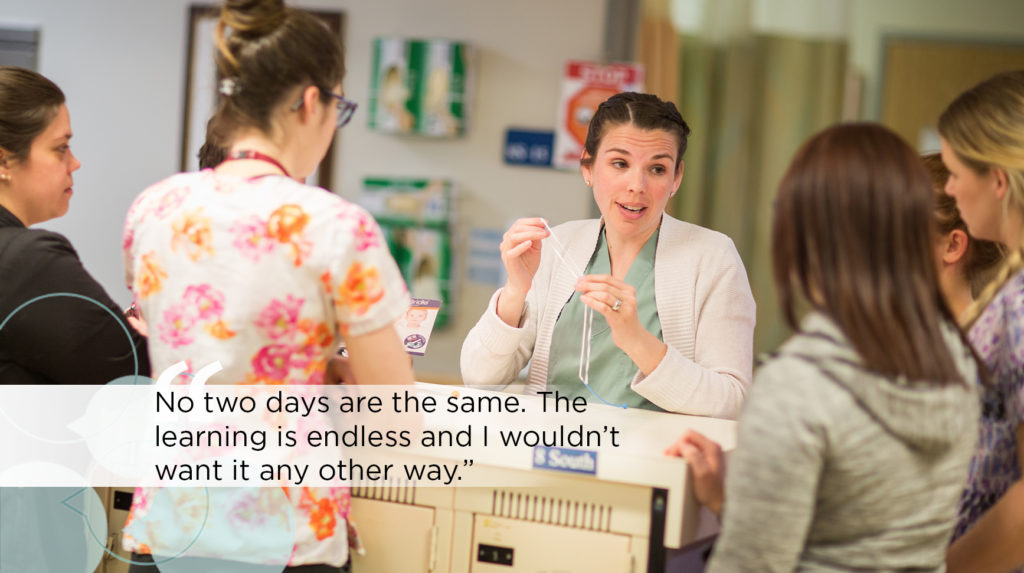
Introducing… an education and development clinician
Meghan McBride is an inter-professional education and development clinician. She supports the acute medicine program at Hamilton General Hospital and has been with Hamilton Health Sciences (HHS) for 12 years.
What do you love most about your role?
Performing meaningful work means being grounded in the principles of openness, creativity, curiosity and reflection. As a clinical educator, my role allows me to facilitate problem solving from this perspective. Every day, I work with and coach an amazing team in acute medicine. We create positive change through education and application of learning.
What do you find challenging?
Like all clinical specialties, acute medicine is continuously evolving. There is a constant stream of clinical practice updates and best practice guidelines that impact the care we give our patients. No two days on an acute medicine unit are the same. The learning is endless; I wouldn’t want it any other way!
Describe a typical day
Each day starts by taking the pulse of the unit. By faithfully participating in the acute medicine safety huddle and CQI huddle board, I get a good sense of the unit’s needs for that day and over the long term. By facilitating both corporate education programs and unit-based education sessions, I support the acute medicine team to make meaningful impact through the application of learning at the unit level. I could teach corporate education sessions such as basic life support or advanced cardiac life support, or I could support a new graduate’s entry into practice. There is great variety and opportunity in my role.
Performing meaningful work means being grounded in the principles of openness, creativity, curiosity and reflection.
Tell us about your most gratifying experience at HHS
What I am most proud of is how the acute medicine team took control of their work environment to positively address workplace violence. This was all done through our education programming. Our team partnered with Behavioural Supports Ontario to have some simulation-based learning that addressed unit-specific struggles. It was a turning point on the unit and is a great example of the positive impact that “learning – for the team by the team” produces.
What’s one thing people would be surprised to learn about your role?
Because my role is often heavily focused on clinical practice, people may be surprised to know how much opportunity there is to produce primary research. In the last two years, I have had the privilege of being a co-author on two innovative quality improvement projects. In one project, we analyzed data related to the discharge process and learned to standardize the way we do it to ensure a safer discharge. There is never a lack of ideas or opportunity when it comes to education and acute medicine.
